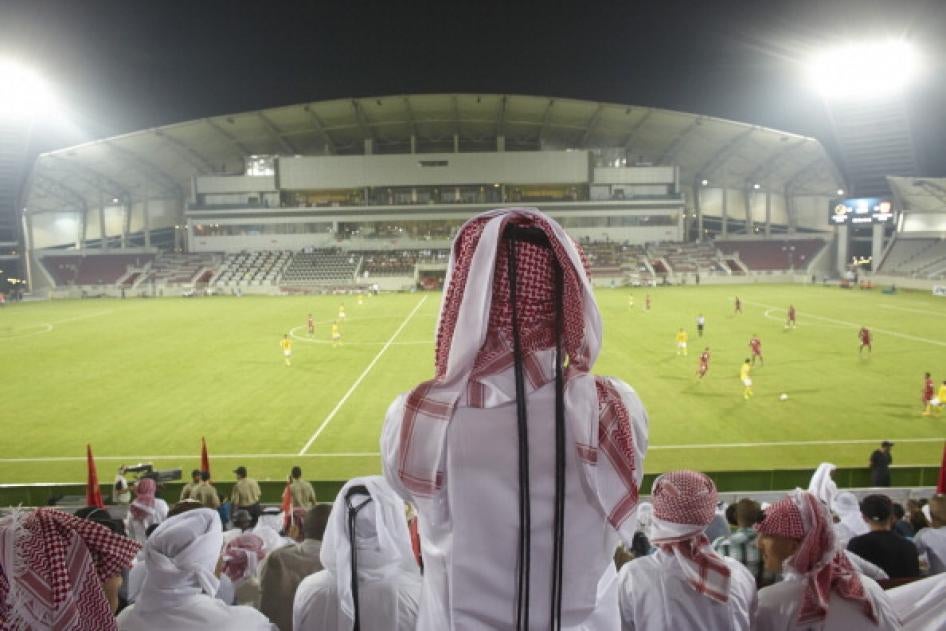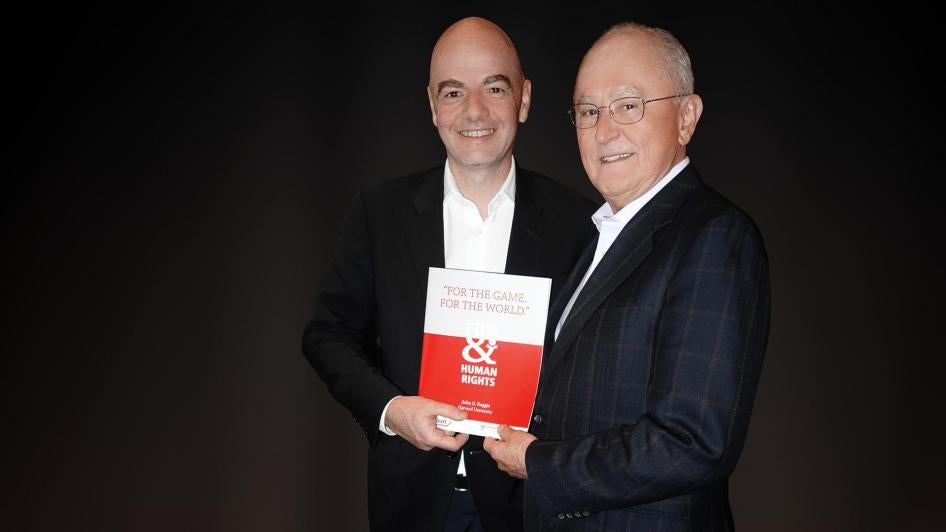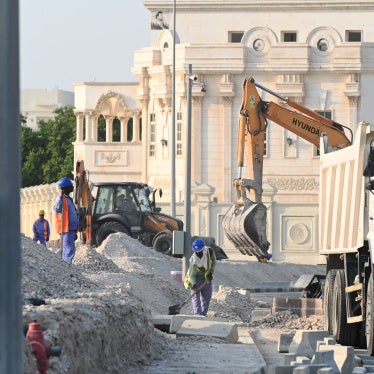Global soccer behemoth FIFA has had a tough year of its own making. Embattled FIFA head Sepp Blatter was turfed out in December over corruption revelations. Amnesty International’s March 31 report on migrant labor abuses in Qatar, slated to host the 2022 World Cup, denounced “FIFA’s shocking indifference” to widespread abuses including high recruitment fees, squalid living conditions and unpaid wages.
Facing escalating condemnation and embarrassed corporate sponsors, FIFA hired Harvard professor John Ruggie, who developed the UN Guiding Principles on Business and Human Rights, to review FIFA's human rights policies and recommend reforms. The Guiding Principles explain how all businesses and commercial enterprises should take effective steps to avoid human rights problems and ensure remedy for abuses that occur in spite of those efforts.
Ruggie’s report, “For The Game. For The World,” out today, notes FIFA does not have much in place to protect human rights.
Over the last year, FIFA’s failings have been on full display. The Qatari government pledged only mild reforms to its abusive kafala sponsorship system, then delivered even less. Low-paid migrant workers must still get their employer’s permission to change jobs or for an exit visa to leave the country, a system that often prevents workers from leaving abusive employers.
Human Rights Watch has long reported on abuses caused by mega-sporting events like the World Cup, including forced evictions from homes without compensation, abuses of workers building stadiums, and crushing of critics.
Ruggie’s report calls on FIFA to develop effective rights policies and procedures, to ensure it avoids or mitigates human rights violations, and enable victims to secure redress. The report offers a credible picture of what a meaningful human rights infrastructure at FIFA could look like—but for now it is nothing more than words on paper.
Even if FIFA reacts positively to the report, it is just a start. Its new president, Gianni Infantino, needs to instill a new culture that says: FIFA will work as hard as possible to avoid contributing to human rights abuses. And where the World Cup or any other tournament is bound up with abuses, FIFA will act immediately.
There are steps FIFA can take now to show that Ruggie’s report is not mere window-dressing, and they start with firmer action in Qatar. FIFA should publicly demand that Qatar act to end migrant worker deaths, and abolish its abusive exit visa system – something that the government could accomplish with the stroke of a pen – as a necessary first step towards reforms.
FIFA should monitor and remedy abuses in preparations for upcoming World Cups in Qatar, and in Russia, the 2018 host, as rigorously as it oversees stadium completion. The International Olympic Committee has already taken steps in the right direction.
FIFA has a basic roadmap for reform. Now it needs to stop human suffering caused by the “beautiful game”— not merely kick the ball down the field.










